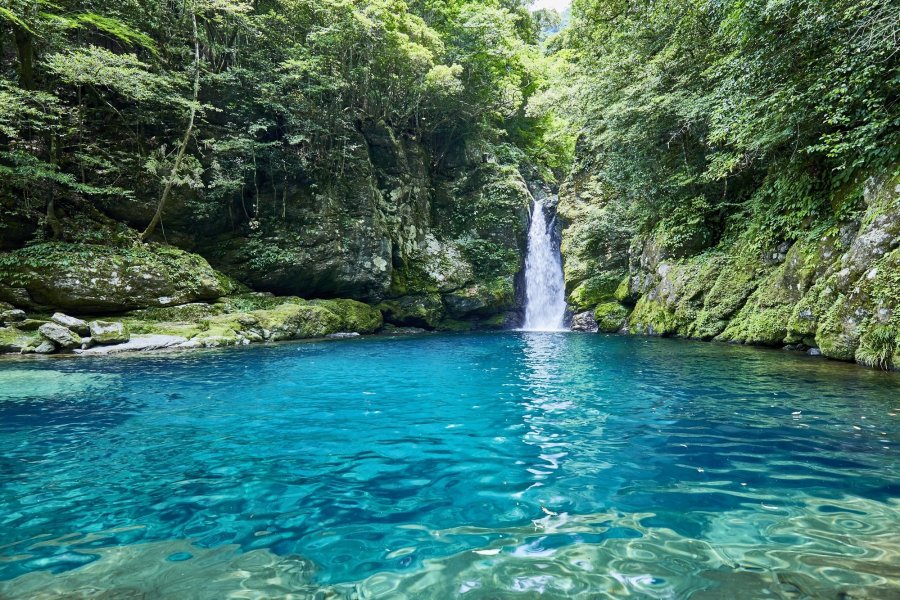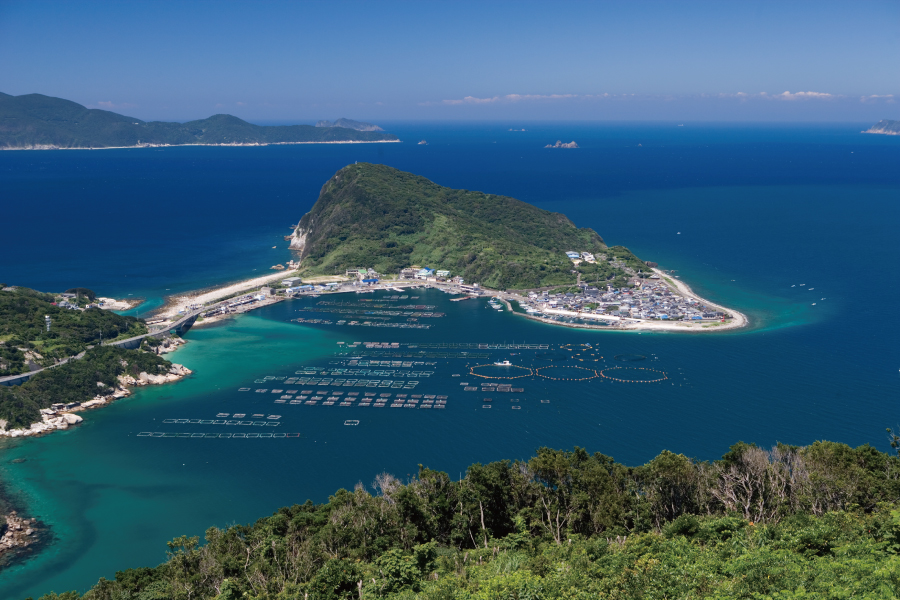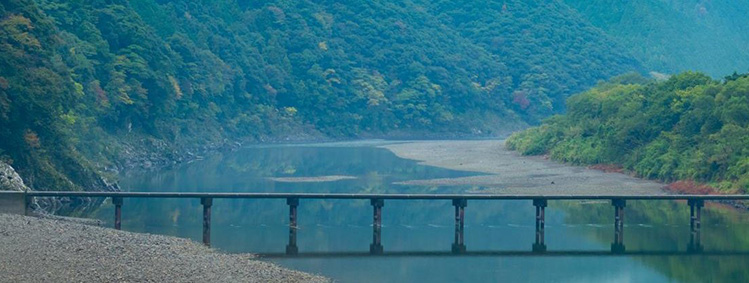Conversations from Kochi: Yoshiko Matsumoto (Farm Guesthouse Noneya)
The drive to Farm Guesthouse Noneya (pronounced noh-nay-yah), hidden deep in Toyo, a town in east Kochi right along the border with Tokushima Prefecture, takes you past some of the most stunning landscapes the prefecture has to offer. Driving along the coast, the turquoise and sapphire two-toned ocean is white-capped with waves crashing against great, black rocks. As we move inland, the mountains take over the view—so much so that you nearly forget that the ocean is so close. Driving along narrow mountain roads, when we finally arrive at our destination, I can’t help but ask, “Really? Here?”
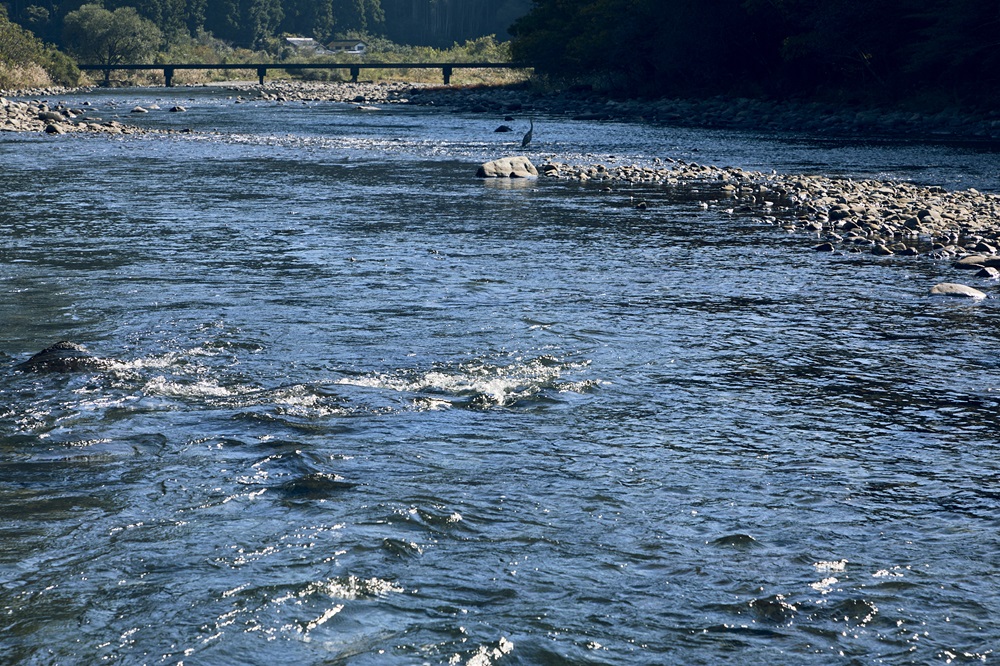
Located at the end of a country road, right in front of the None (noh-nay) River, Noneya is one of a handful of homes in the area. Deep yellow yuzu are just starting to dot the surrounding trees, leaves bright in the unseasonably warm sunshine. There is more nature here than people, leaving me with the impression that I have somehow stepped back in time.
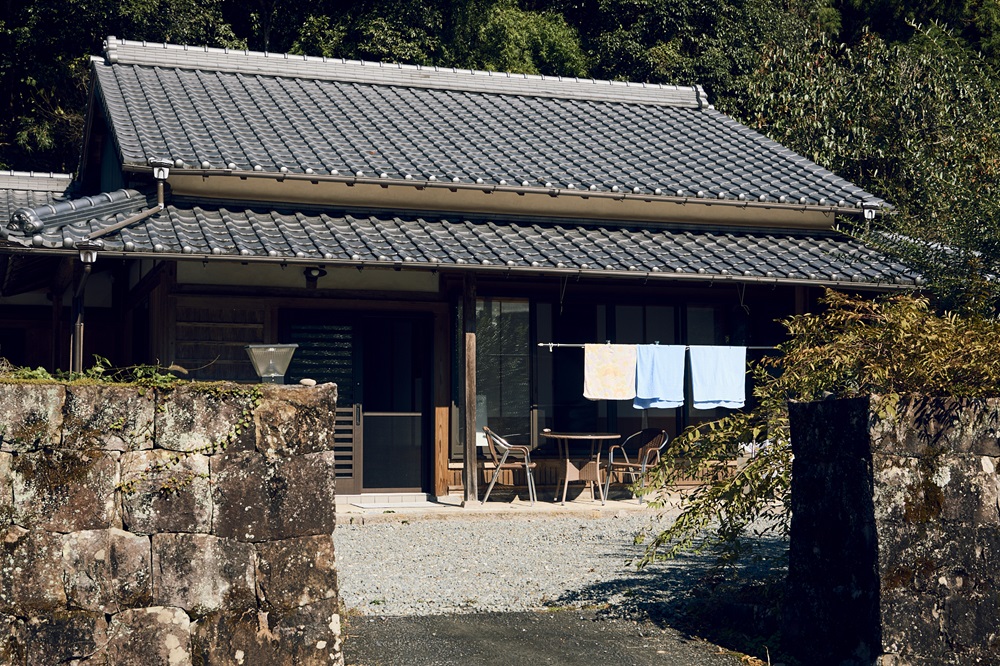
We are met by Yoshiko Matsumoto (75), the owner of Noneya. She’s in the kitchen, making preparations for lunch. The smell of dashi stock fills the air as she apologizes for not being ready quite yet. Her home, which also serves as lodgings for visitors, used to belong to her husband’s grandfather. Built 120 years ago, it underwent a year of repair work before it was ready to use. Full of warm wood, large windows, and a modern kitchen, it’s the perfect blend of old and new. A bowl of freshly picked lemons, yuzu, and sudachi citrus fruit sits on the counter.
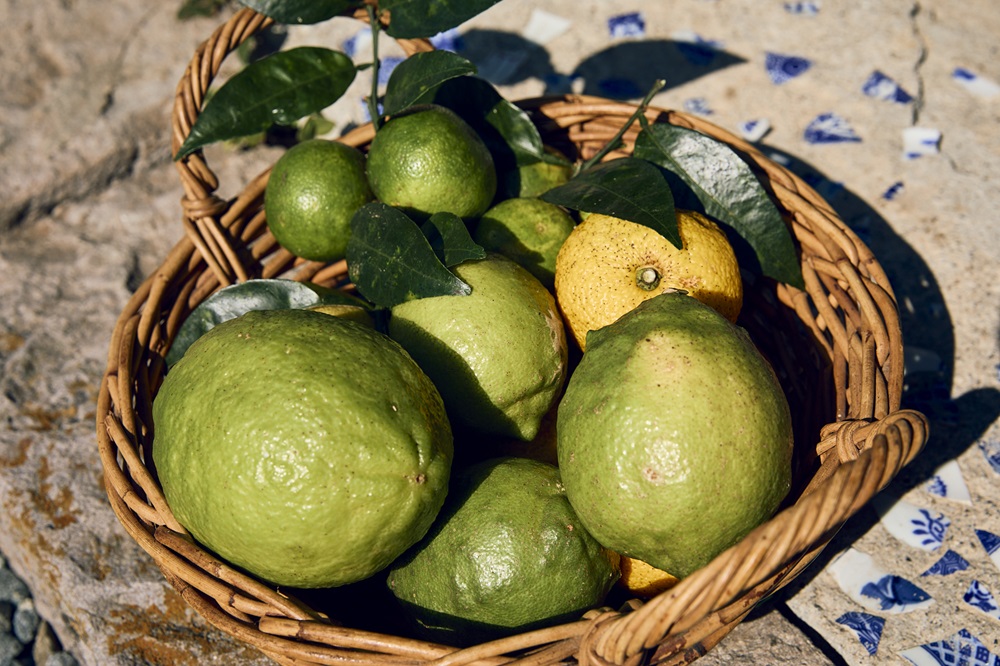
Before Noneya was open to the general public, it served as a place to stay for junior high school students on school trips to Toyo. “It was really fun having them stay here,” Yoshiko recalls, “and I thought if I could make this a place for people to stay, I could meet new people and have them experience life in the countryside.”
Being so far removed from civilization, what is it that draws people to Noneya? “I think one of the biggest draws is being able to experience living with nature. There is hardly anything man-made here. The mountains and the river are the same as they were thousands of years ago. People living in cities who may not have had the experience of working with plants or soil can experience these things here.” Her family grows yuzu and ponkan, two citrus fruits, as well as rice, in addition to having a small vegetable patch.
She tells a story about how this out-of-the-ordinary experience has a lasting effect on visitors: “When yuzu-picking, you use scissors to cut the fruit from the tree. People are so surprised that when you cut the yuzu down, you get this burst of bright, citrus aroma from the tree. Then, when they go to juice them, seeds go flying and the whole room is filled with the scent of yuzu. People really respond to that aroma, saying it relieves stress. We have a group that has come for more than five years in a row to experience it.”
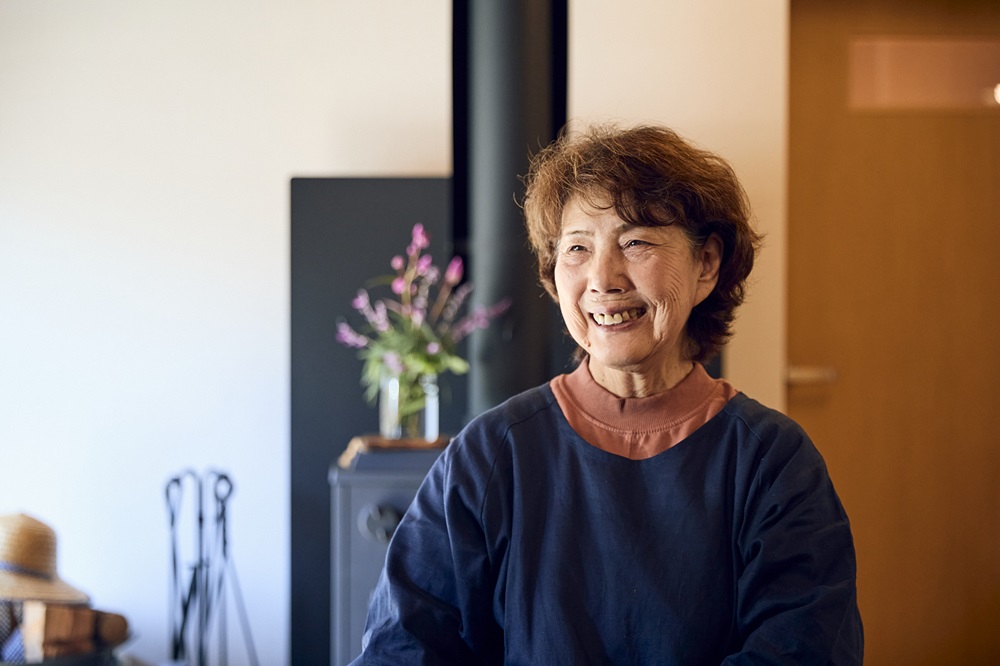
In addition to yuzu-picking, another popular workshop for visitors is making kokera-zushi, a specialty of the None region with more than 100 years of history. Yoshiko was part of a group working to preserve and convey the tradition for 17 years before health issues prevented her from participating. “But I still wanted to teach visitors about kokera-zushi, so I added it as something visitors could make when they visited.”
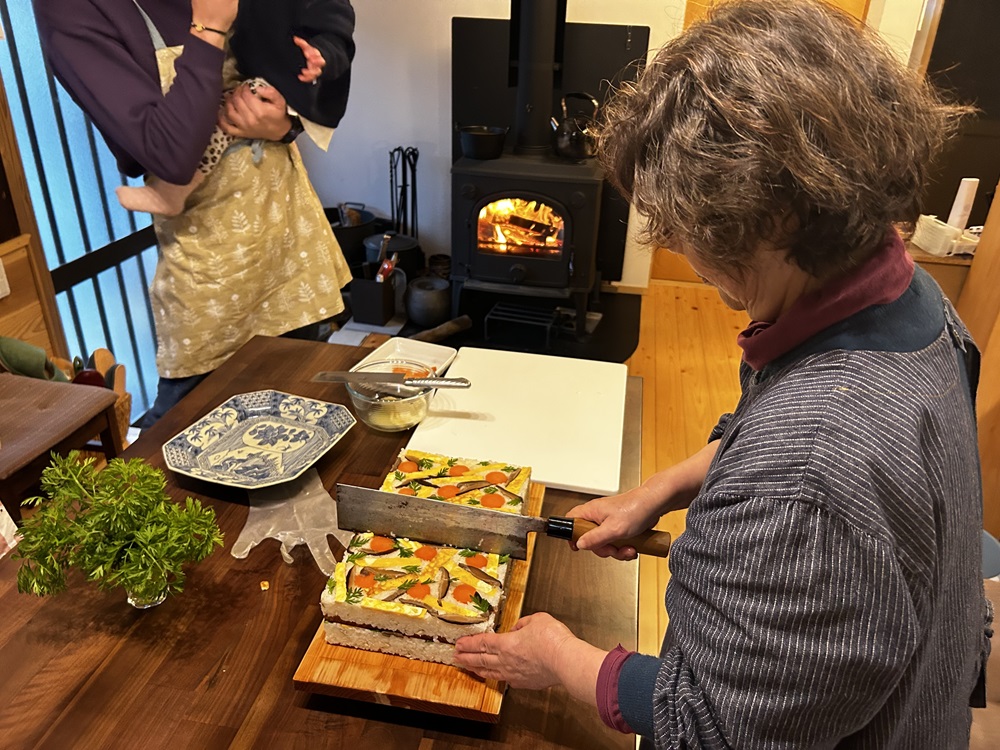
Usually made for special celebrations, kokera-zushi is a pressed sushi made with rice mixed with vinegar and dashi. It is layered with vegetables, grilled mackerel, paper-thin pieces of omelet, and more. She has even come up with a vegan version, born out of a slight miscommunication. “I had two international visitors come for a yuzu-picking and kokera-zushi experience. I made the kokera-zushi as usual, but when it came time to eat, the coordinator suddenly apologized, saying they forgot to mention that the visitors were vegan. So, I used the regular rice that I had steamed and improvised.”
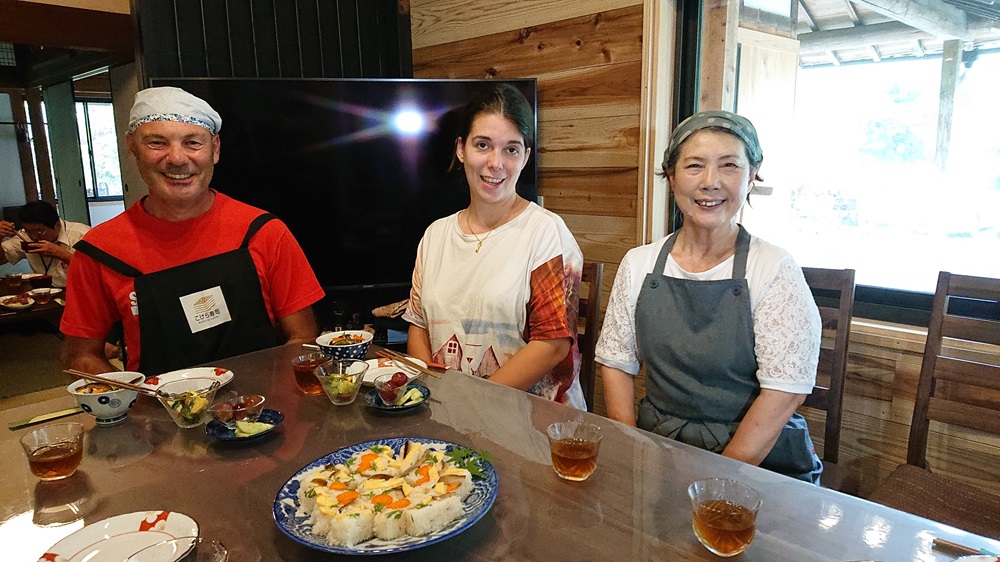
She calls vegans “vegan-san,” using a polite honorific at the end. It suits her personality: her speech is warm and polite, punctuated by hearty chuckles and laughs. The next time she had vegans over for kokera-zushi, she was more prepared. “I spent the whole night thinking about it!” she says, recalling how she substituted fish-based stock for vegetable broth, simmered carrots and shiitake in kombu stock, and used dried gourd strips (kampyō) dyed yellow with saffron for the eggs. “Thinking back, I would probably use gardenia pigment instead!” she laughs. Flexible and quick on her feet, Yoshiko is a wizard in the kitchen, inheriting her skills from her mother, who was a chef specializing in regional cuisine.
“From the perspective of the younger crowd, I’m like their grandmother. The food I make is simple, homemade country food. I don’t try to make anything fancy like you might find at restaurants in the city; I let my cooking speak for itself using local ingredients–just like the food I make for myself. My guests often tell me that they can’t find food like this in the city and rave about how good it is. I eat the fish from the None River and the vegetables that I grow in our garden. I think it keeps me healthy,” she explains.
I tell her that must be the secret of her youth and vitality, and she laughs. “The local food here is so good and I eat a lot!”
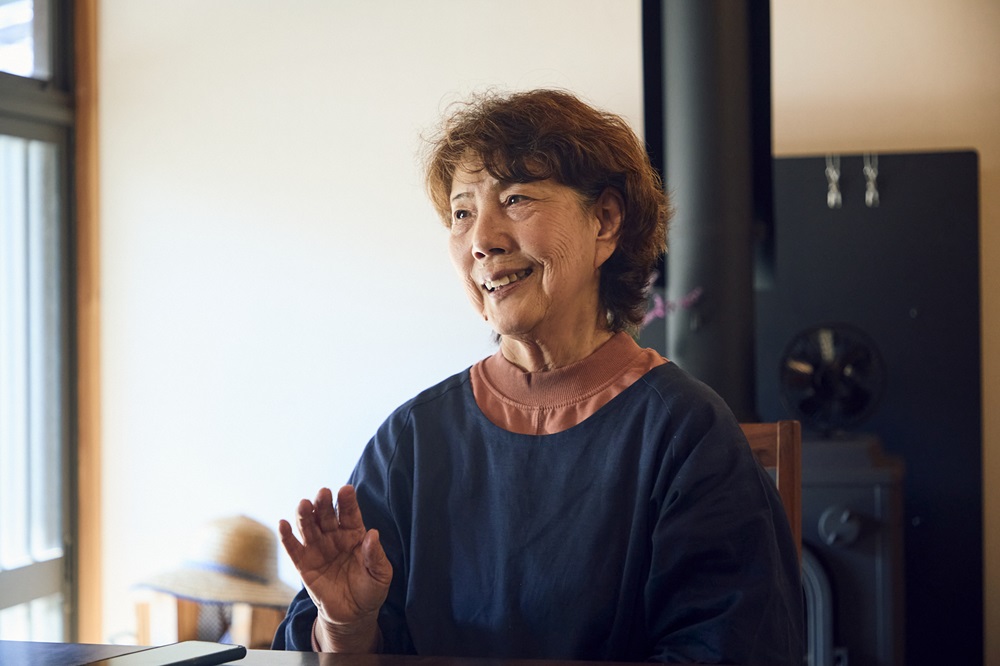
She tells me about visitors who message her saying they’ve made kokera-zushi at home for their friends and family. Some have even bought the special wooden frame used to make it. “It makes me so happy when I hear people are trying to make it at home.” she says, as visitors help to carry on the tradition and legacy of this regional dish.
When asked if she has a message for our readers, she pauses in thought. “People living in the city lead such busy lives. That’s why I want them to come here and relax; to unwind and breathe out here in nature. There’s nothing out here, nothing much to do per se. But being able to enjoy breakfast while looking out at the greenery around you? That has to be more relaxing than looking out at buildings on your balcony in the city. Don’t just make us another stop on your busy trip. Take the time and really savor your night and the next morning here.”
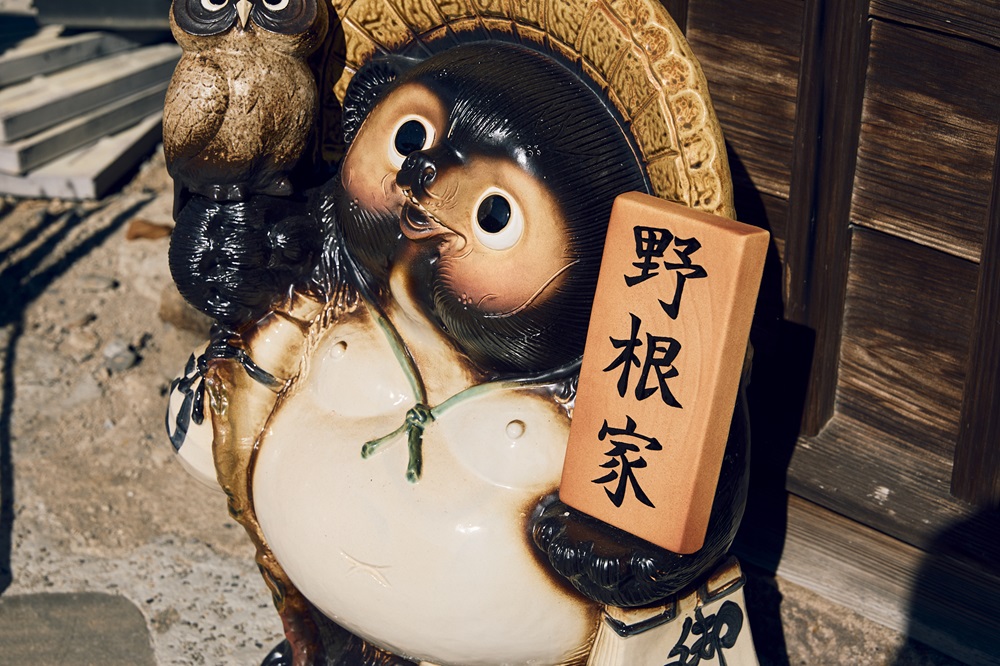
I think we can all relate to her sentiments. Watching Yoshiko prepare lunch deftly, but with care, I get the sense that she is truly living in the most human way possible, using ingredients found around her to make lunch for her guests. The window next to the table frames an impressive tree, branches outstretched and still full of green leaves, like a painting. Despite being there for only a few hours, Noneya has left an indelible impression on me. Before we leave, she hands us lemons from her garden and sudachi citrus fruits, still on the branch. The glossy green leaves peek their head out from my bag, reminding me to take in the beauty of nature everywhere I go.
------------------------------------
Farm Guesthouse Noneya
Address: 2379-1 None-otsu, Toyo-cho, Aki-gun, Kochi
Best season: Spring and fall



